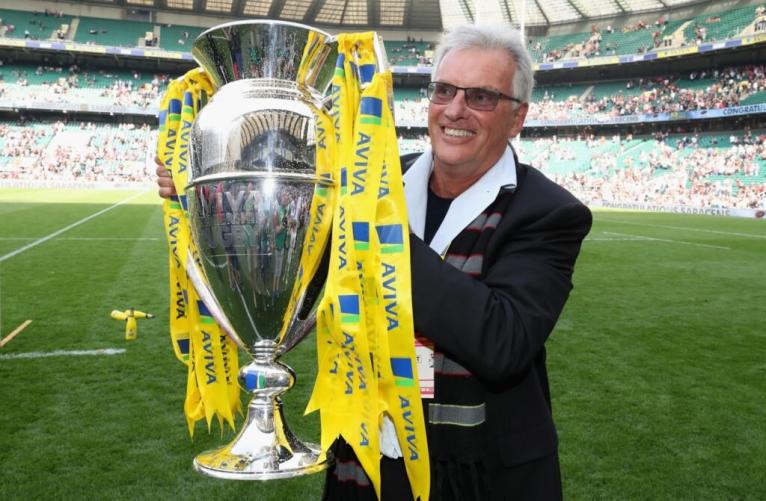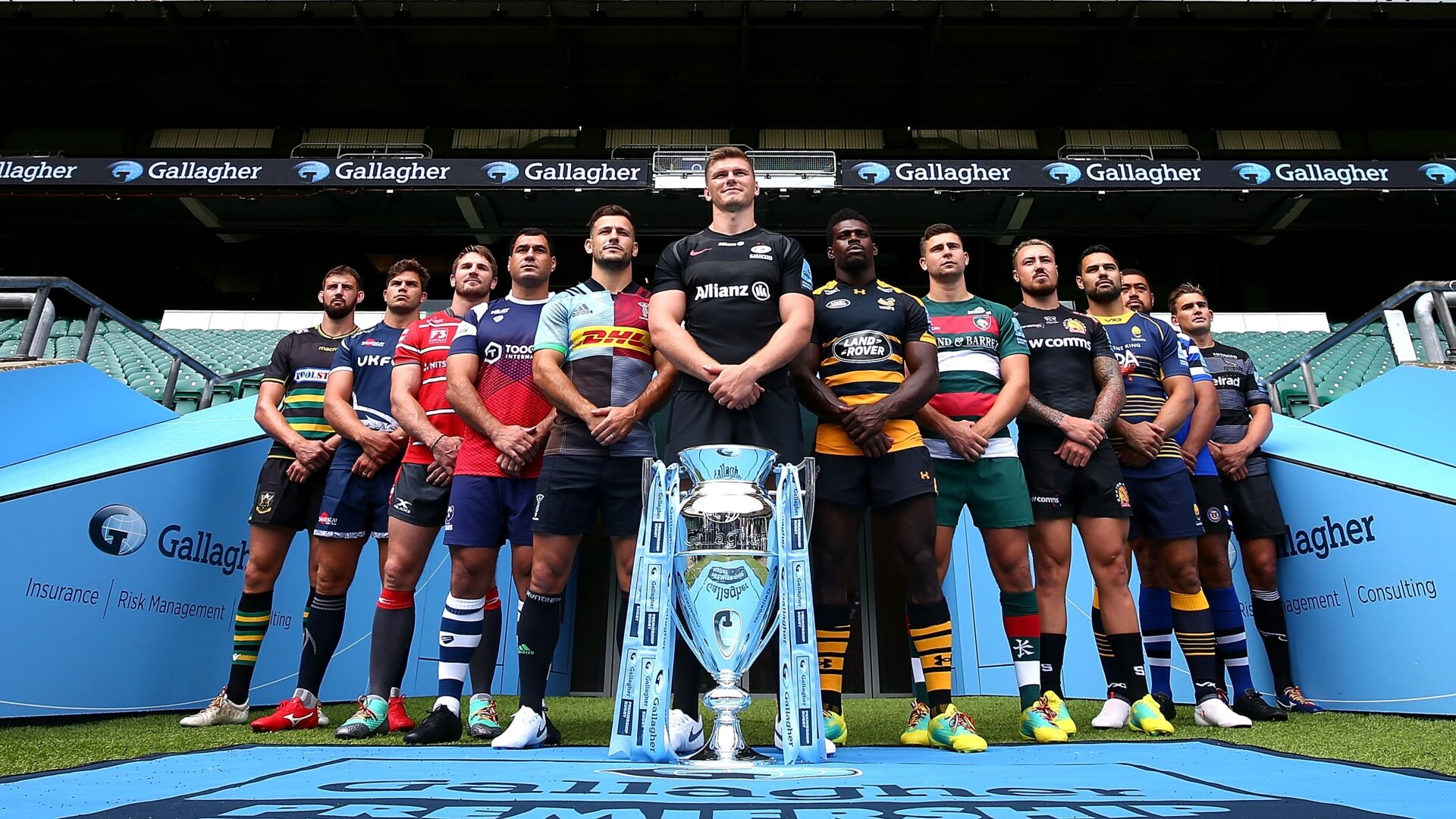What's the point of the salary cap? - Andy Goode

The issue of the salary cap is back in the headlines again and it’s time for Premiership Rugby to finally clear up what its purpose is and whether it is enforceable.
Is the salary cap there to stop clubs from going bust and to be considered a tool to help clubs protect themselves or is it a strict limit that is set out with the principle objective of ensuring a level playing field between all 12 teams in the league?
And, perhaps most relevant and most important of all, is it just a guideline or is it an enforceable legal requirement?
These questions have come to the fore once more because of what looks on the face of it to be a great bit of journalism by Laura Lambert and Matt Lawton for the Mail into some of Saracens’ practices and Premiership Rugby have said they will “look closely” at the information they have provided.
That’s all well and good and I understand that they will have to digest all of the information and go through the proper processes behind closed doors rather than reacting publicly in a knee-jerk fashion but it’s not the first time an issue like this has come to light and it has to be addressed.
I think Premiership Rugby have either got to be stronger and more transparent in relation to the salary cap and say publicly why it is there and that they are going to investigate any alleged breaches thoroughly and administer the stringent punishments that are listed in their terms and conditions or acknowledge that they are more of a guideline.
The salary cap was brought in originally to keep professional rugby alive and growing after the likes of Coventry and Richmond suffered financially in the early years but now it is often perceived as a way of trying to make sure everyone is on an even footing as much as is possible.
Rugby clubs have been trying to get an advantage any way they can for as long as I can remember and back in my days at Leicester the away fans used to chant ‘same old Leicester, always cheating’, so the principle isn’t a new one.

Saracens want to be the most successful club in Europe and will look to make marginal gains wherever they can. Whether they’ve bent the rules or broken them with regard to the salary cap is a matter for those in charge to investigate, if indeed they deem there is a case to answer, but one thing is for sure…if Saracens are doing the things that the article has suggested and nobody is taking them to task about it, then they will continue to do them.
And, what’s more, other clubs might consider following suit if they know that it’s allowed or that they’re not going to be punished for doing so.
There was an investigation into two clubs back in 2014 that lasted for almost a year and the clubs in question were never named but an out-of-court settlement was reportedly reached.
It was rumoured that one of the clubs threatened Premiership Rugby with serious legal action because the salary cap could be considered a restraint of trade. Whether that was the case or what the outcome would be in court is up for debate but Premiership Rugby obviously don’t want it to go that far.
There have been a couple of fines issued recently as well with Wasps paying £20,264 for overrunning their limit by £40,528 and Harlequins fined £6,239.50 for exceeding their limit by £12,479 but, whilst they were considered “a breach of the regulations”, there was “no suggestion it was deliberate”.
According to Premiership Rugby, Quins’ issue was “due to a systems error and that has now been addressed” and Wasps’ case was the result of “a number of adjustments” that were identified by the independent auditors and those have now been addressed too.

The article in the Mail suggests that the practice of property-sharing between Saracens owner Nigel Wray and players has been going on for 15 years so it’ll be interesting to see if that is followed up by Premiership Rugby and whether it’s allowed under their salary cap rules.
The fine print seems to indicate that “any accommodation or holiday cost” is an amount that should be considered part of a player’s salary but maybe there is a different way of looking at that and that will be something for the governing body to decide.
There just seem to be so many fairly sizeable grey areas in terms of what is and isn’t considered part of the salary cap and then even the wording in relation to those areas is very vague as well.
For example, one clause indicates that “if the player will be obliged to perform his obligations under the arrangement either wholly or partly at the direction of his club, it will be more likely to be considered salary”.
The phrase “more likely to be considered salary” crops up rather a lot so it is clearly open to interpretation and it is up to Premiership Rugby to determine what is and isn’t allowed as part of their rules but a bit more transparency would help the clubs and fans understand where everyone stands.
It’s a different kettle of fish but there has been a lot of uproar in recent years about certain big businesses not paying as much tax in the UK as people think they should be. If there are grey areas there, then people will look to use them to their advantage. That’s the reality of business.
The current level of the salary cap for 2017-18 through to 2019-20 is £7 million, plus two excluded players whose salaries sit outside the cap, enabling clubs to recruit and retain world class talent.
You have to tip your hat to Saracens for producing the huge number of players that they have for the England national team and people are bound to question how they are able to retain all of those players and acquire the services of another such as Elliot Daly.

Clubs are encouraged to develop home grown talent by accessing up to £600,000 of Home Grown Player Credits and the likes of Marcelo Bosch, David Strettle, Schalk Burger and Dom Day may all be retiring at the end of this season but you can see why people question how much their overall wage bill comes to when you look at the phenomenal amount of talent in their squad.
People would be far more annoyed if it was perceived that Saracens were spending too much money on 10 Kiwis, seven South Africans, five Australians and a handful of players from other countries, so you have to give their academy a huge amount of credit for what it’s achieved.
And, some people might feel they should be given more credit in monetary terms for bringing through so many England internationals but the rules appear to be quite clear and transparent in terms of how much clubs get for that.
In football there is no salary cap and, although there was a massive anomaly when Leicester City won the Premier League, generally where teams finish roughly corresponds to how much money they’ve spent so money clearly has a massive bearing on results.
I know some of the other owners are up in arms about the fact that other clubs may not be sticking to the rules in the same way that they believe they are, so it’s a big issue for Premiership Rugby and one that isn’t just going to go away.
Nigel Wray, who is reportedly worth around £315 million, hasn’t been part of the number of successful businesses that he has and amassed the amount of money he has by without being supremely intelligent and knowing what he’s doing.
He’ll have a team of many very good people around him as well advising him on the legalities of everything and recommending what is and isn’t possible.
None of us know the exact details of what’s allowed and what isn’t and how to interpret the grey areas but the Mail has raised questions about some of the devices being used by Saracens and provided information so I think Premiership Rugby need to come out and say whether there is a case to answer and if it’s something they are going to pursue fully or not.
You may also like: Rugby Explorer – South Africa



















































